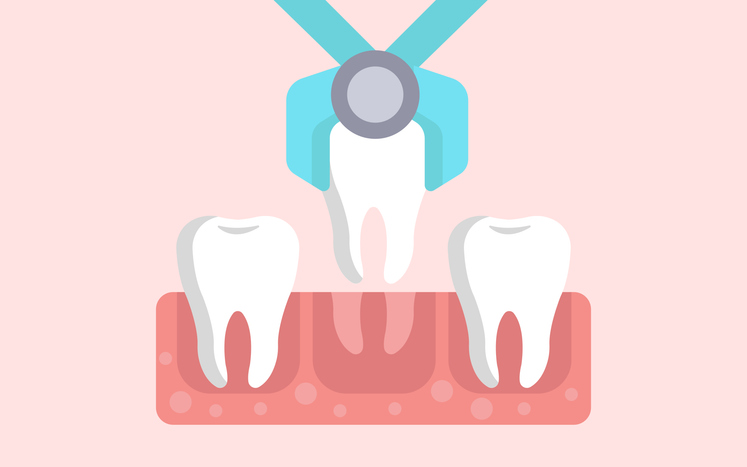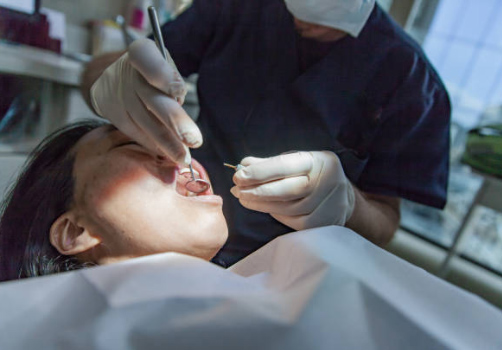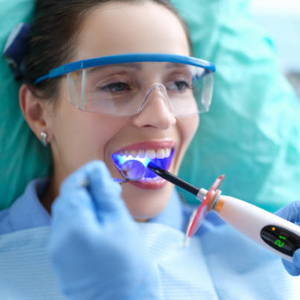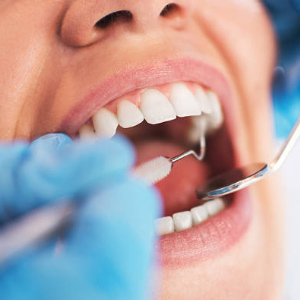Your Comfort is Our Priority
Your well-being is our utmost concern. Before recommending a tooth extraction, our dentist will perform a comprehensive assessment of your unique situation.
We utilize cutting-edge techniques and equipment to ensure that the procedure is as efficient and pain-free as possible. Our soothing environment is designed to help ease any anxiety you may have about the process.
We utilize the state-of-the-art iTero scanner for all our dental services, ensuring precise, efficient, and comfortable scanning for optimal results.
Enquire now
When is Tooth Extraction Necessary?
Tooth extraction may become necessary in various circumstances, particularly when significant damage or decay prevents effective treatment with fillings, crowns, or root canals. Common reasons for tooth extraction include:
- Severe Tooth Decay: When a tooth is beyond repair due to extensive damage.
- Gum Disease: Advanced periodontal disease affecting the stability of the tooth.
- Fractured Tooth: A tooth that is fractured beyond the possibility of repair.
- Abscess: A localized infection around the teeth or gums that may require removal.
- Dental Overcrowding: Insufficient space in the jaw to accommodate all teeth comfortably.
- Impacted Wisdom Teeth: Wisdom teeth that cannot emerge properly.
Our dedicated team will guide you through the decision-making process, explaining the reasons behind the potential need for extraction.
Preparing for Your Tooth Extraction
Preparation begins with an open discussion about your dental and medical history. It is essential to inform your dentist of any existing medical conditions, allergies, recent surgeries, and current medications.
Your dentist will provide specific instructions to ensure you are fully prepared for the procedure, addressing any questions or concerns you may have.
How many days does it take to recover from tooth extraction ?
It depends on the complexity of your case. However, most people feel back to normal within just a few days. While you can resume routine activities within 48 to 72 hours, it typically takes the jawbone several weeks to heal completely.
How painful is a tooth extraction ?
As the dentist removes your tooth, you shouldn’t feel any pain. However, you may experience some pulling or pressure in the area. Additionally, oral sedatives can make you feel sleepy, so you might even fall asleep during the procedure.
How to heal an extracted tooth faster ?
Eat a diet of soft, healthy foods and snacks, and drink plenty of liquids. Brush your teeth gently but avoid brushing around the extraction site. Keep the extraction site clean, and after 12 hours, you may gently rinse your mouth.
Avoid drinking with a straw, sucking on candy or ice pops, slurping soups, or rinsing your mouth vigorously for 24 hours. These actions can create suction, which may dislodge the blood clot. Also, refrain from drinking alcohol or using mouthwash containing alcohol during this period. Finally, don’t spit, as this can loosen or dislodge the clot.
Is Tooth Extraction Painful?
You will be relieved to know that tooth extraction is typically not painful, thanks to the administration of local anesthesia, which effectively numbs the area around the tooth. While you may feel some pressure or vibrations during the procedure, pain is generally not experienced. After the extraction, mild discomfort is common as the anesthesia wears off, but this can be managed with prescribed pain medications. Most individuals find that discomfort subsides within a few days, particularly when following our post-operative care instructions.
When can I stop being scared of dry socket ?
once you make it past 1-2 weeks after your tooth extraction, you are no longer at risk of developing a dry socket.
What is dry socket ?
What is tooth extraction process ?
The procedure for tooth extraction generally involves the following steps:
- Local Anesthesia Administration: Your dentist will begin by administering local anesthesia to numb the area surrounding the tooth. You will have time to relax as the anesthesia takes effect.
- The Extraction Procedure: Your dentist will gently widen the socket and loosen the tooth before removal. There are two primary types of extractions:
- Simple Extraction: This procedure is performed on visible teeth. After numbing the area, your dentist will use specialized instruments to gently loosen and extract the tooth.
- Surgical Extraction: For teeth that are not easily accessible, a surgical extraction may be necessary. This involves making a small incision in the gum and may require the removal of surrounding bone or sectioning the tooth for easier extraction. For your comfort, this procedure may involve a combination of local anesthesia and sedation.
- Replacement Options: After a tooth extraction, there are various options for replacing the missing tooth, including dental bridges, partial dentures, and implants. We encourage you to discuss the best options for your situation with your dentist during your consultation.
How long will my face be swollen after tooth extraction ?
Some swelling is normal after oral surgery. Typically, it increases over the first 2 or 3 days and then gradually decreases afterward.


















